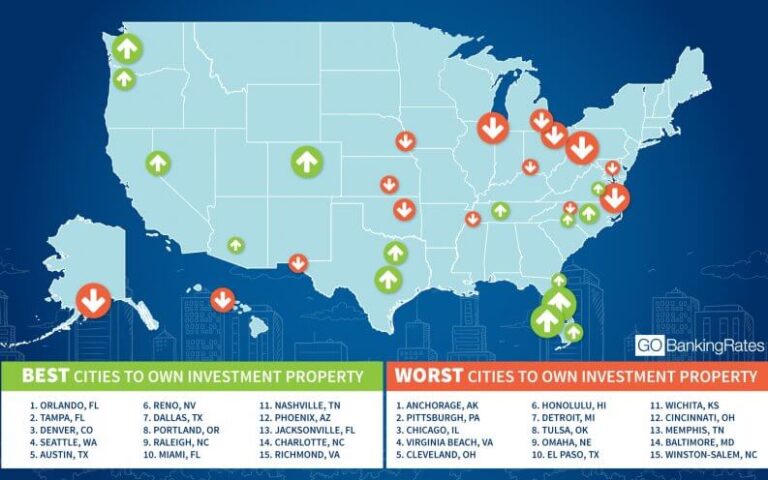How To Sell A House Fast For Cash
Ever noticed how traditional home-selling methods can drag on for months, leaving homeowners in a frustrating limbo? According to the National Association of Realtors, cash sales accounted for 20% of home transactions in 2020. It’s like having the secret recipe to a quicker, smoother, and stress-free sale process.
To navigate this landscape effectively, understanding the dynamics that drive cash buyers is crucial. Over the years, the allure of a fast, cash-based transaction has only grown stronger, driven by market fluctuations and economic uncertainties. Statistically, homes sold for cash tend to close in just one-third of the time compared to those relying on financing. By positioning your property to attract these buyers, you’re aligning with the demands of a fast-paced market.
- Enhance curb appeal and declutter your home to attract cash buyers.
- Price the house competitively based on market research.
- Use online platforms and social media for targeted marketing.
- Vet potential buyers carefully by verifying their funds.
- Facilitate a smooth closing with all necessary documents prepared in advance.

How to Sell a House Fast for Cash
Selling your house for cash can be quick and simple. Start by sprucing up your home to make it attractive to buyers. Declutter rooms, fix any damages, and maybe add a fresh coat of paint. These changes make a great first impression. The goal is to help potential buyers imagine themselves living there.
Pricing your house competitively is crucial for a fast cash sale. Research the market to see what similar homes are selling for. By setting a fair price, you’ll attract more cash buyers who want a good deal. Using an online valuation tool can give you a clear idea. Remember, a well-priced home won’t sit long on the market!
Another step is to market your home effectively. Put your listing on popular real estate websites. Use social media to extend your reach. You might want to use bold, clear photos that highlight the house’s best features. Also, a catchy description can grab potential buyers’ attention.
Finally, be ready to negotiate when you receive offers. Cash buyers often look for bargains, so be prepared to discuss your price. Make sure you understand the buyer’s needs. Closing the sale quickly means having all your paperwork ready. With everything in place, you’ll soon finalize the deal and celebrate your successful sale.
Step 1: Preparing Your House for Sale
The first step to selling your house is getting it ready for potential buyers. Start by cleaning every room thoroughly. This isn’t just about tidying up, but also about making things shine. Pay attention to bathrooms and kitchens as these areas are often scrutinized. A clean home tells buyers it’s been well-cared for.
Next, consider making small repairs that can enhance your house’s appeal. Fix leaky faucets, patch up holes in the walls, and replace broken lights. These little touches can make a big difference. Buyers want a house that feels move-in-ready. Selling a house often hinges on that first impression.
Decluttering is critical when staging your home. Remove excess furniture and nick-nacks. This helps create a more open space, making rooms appear larger. Keep personal belongings, like family photos, out of sight. Buyers need to visualize themselves living in your space.
Boost the curb appeal of your home. Mow the lawn, trim bushes, and plant some colorful flowers. A fresh coat of paint on the front door can also add charm. Investing time in the exterior can attract more visitors. It’s all about creating an inviting atmosphere that pulls people inside.
Step 2: Pricing Your House Competitively
Setting the right price for your house is crucial in attracting buyers quickly. Start by researching your local market. Look at recent sales of homes in your area that are similar in size and condition. This gives you an idea of what buyers are willing to pay. The market value helps set a baseline for your pricing strategy.
Avoid overpricing, as it can deter potential buyers away. An overpriced home might sit on the market longer, raising red flags for buyers. Pricing too low, though, could mean losing money. Getting advice from a real estate agent can be beneficial. They have expert knowledge and can suggest a competitive price.
Consider the unique features your home offers when pricing. Things like a renovated kitchen or a large yard can add value. Make a list of these appealing factors. Highlight these in your listing description. It’s important to match your asking price with the value these features add.
Checking similar listings regularly is essential to stay competitive. The housing market can change rapidly. Use this information to adjust your price if necessary. A well-priced home has an edge over others. It invites a quicker, smoother sale process.
Step 3: Marketing Your House to Cash Buyers
Marketing your house effectively is vital to attracting cash buyers. Start with high-quality photos that showcase your home’s best features. Bright, clear images catch the eye and make a powerful first impression. Pair these with an engaging description that highlights unique aspects of your home. Be sure to mention features like a new roof or a remodeled kitchen.
Use popular online real estate platforms to reach a wide audience. Websites like Zillow, Realtor.com, and Redfin are fantastic for listing homes. Targeting these platforms helps connect you with potential cash buyers promptly. Include keywords like “cash sale” or “move-in ready” to draw attention. With the right words, your listing can stand out.
Social media can be a great tool to expand your reach. Share your home listing on sites like Facebook and Instagram, where it can reach friends and their networks. Consider joining local buying and selling groups to further promote your listing. Engaging captions and hashtags help boost your post’s visibility. Creative marketing can draw more interest to your property.
Working with a realtor experienced in cash sales can also be beneficial. Realtors have extensive networks and can connect you with interested buyers quickly. They know how to emphasize features cash buyers look for. This expertise can make marketing more effective. Trusting their guidance can lead to a quicker sale.
Consider hosting open houses or virtual tours.
- Open houses let buyers experience your home’s ambiance firsthand.
- Virtual tours offer convenience, allowing viewers to explore from anywhere.
These events create excitement and reach those not yet familiar with your property. By showcasing every part of your house, you increase your chances of a successful sale.
Step 4: Negotiating the Sale
Negotiating the sale of your house requires patience and strategy. Cash buyers often want to negotiate for a lower price, expecting some discount for a quick, hassle-free transaction. It’s smart to start with a slightly higher asking price to give room for negotiation. This way, buyers feel they’re getting a good deal when you meet in the middle. Always be prepared to justify your price with market facts and feature highlights.
When offers come in, consider more than just the price. Think about the closing date the buyer suggests. A cash sale often leads to faster closings, which might suit your timeline, especially if you’re in a hurry to sell. Evaluate how flexible the buyer is on repairs or other conditions. Checking these details helps decide which offer benefits you the most.
Communicate clearly and respectfully with buyers or their agents. A friendly approach can keep negotiations positive and fruitful. Avoid saying no outright; instead, use words like “let’s see if we can find a compromise.” This keeps the dialogue open and constructive. Remember, maintaining good rapport can lead to a better agreement for both parties.
Consulting your real estate agent during negotiations can offer valuable insight. Agents understand market dynamics and have experience bluffing out lowball offers. They can suggest counteroffers that reflect your needs and protect your interests. Trusting their expertise may lead to better outcomes. With their help, you’re more likely to close a fair deal.
Step 5: Closing the Sale
Closing the sale of your house is the final step, where all the hard work pays off. This process involves signing the necessary paperwork to transfer ownership. Ensure that all documents are ready and reviewed, such as the deed transfer, bill of sale, and title search. It’s essential to use a reputable title company or attorney to handle these details. Their expertise can help prevent any last-minute hiccups.
Be prepared for the closing costs that come with selling a house. These can include items such as agent commissions, title insurance, and any outstanding taxes. Understanding these expenses beforehand helps avoid surprises. Make a checklist of all costs and compare them to your expected profits. Keeping track ensures you’re comfortable with the financial aspects of closing.
The actual closing meeting often includes both the buyer and seller, along with their respective agents. You’ll sit down together to finalize everything and exchange keys. This meeting typically occurs at the title company or lawyer’s office. It’s brief yet significant, marking the transfer of ownership. Celebrate this moment, as it means you’ve successfully closed the deal.
Once the sale is finalized, it’s time to tie up any loose ends. Cancel utilities in your name and forward your mail. Make sure the new owner has all the manuals and warranties for appliances. It’s important to leave the home in good condition and with all agreed-upon items intact. Taking these steps shows integrity and completes a smooth transition for everyone involved.
Benefits of Selling Your House for Cash
Selling your house for cash brings the advantage of a speedy transaction. Unlike traditional sales, there’s no waiting for loan approvals or lengthy underwriting processes. Buyers ready with cash can close within a matter of days. This is especially beneficial if you need to relocate quickly or access funds fast. It removes much of the stress that comes with prolonged sales timelines.
Cash sales often involve fewer contingencies, simplifying the process. Many cash buyers are investors who purchase properties as-is, meaning you don’t have to spend time or money on repairs. This simplicity means fewer obstacles to overcome before closing day arrives. Inspectors and appraisers are generally not part of the equation in cash deals. The straightforward nature of these transactions offers peace of mind.
Reduced risk is another key benefit when selling for cash. With no financing involved, sellers avoid the uncertainty tied to buyer loan qualifications falling through last minute. Deals collapse less frequently due to financial hiccups on the buyer’s side.
- No inspections mean negotiable conditions.
- No mortgage delays equate to smooth sailing.
This sense of certainty makes a world of difference in planning your next steps confidently.
Flexibility in negotiation empowers sellers during cash sales. Often, you can communicate directly with buyers and tailor terms that cater to both parties’ needs effectively. Whether it’s adjusting the closing date or negotiating on price, this flexibility benefits everyone involved. Having this freedom can be empowering as you finalize one chapter and transition into another smoothly without added stress.
This quick and straightforward method frees up time spent dealing with advertisements and home shows also reducing marketing costs significantly compared to traditional methods where extensive marketing efforts are made initially followed closely by drawn-out processes till finalization finally arrives after many months ahead depending largely upon current market conditions standing between you & opportunities waiting farther afield right afterwards again shortly thereafterward too!
Drawbacks of Cash Sale Transactions
While selling your house for cash can be quick and convenient, it has its downsides. One major drawback is that cash buyers often expect a discount. They might offer less than market value to speed up the transaction. This could mean you walk away with less money. Balancing speed and price is a critical consideration.
There’s also the risk of encountering scam artists or less reputable buyers. Since cash transactions move quickly, it can be harder to vet buyers thoroughly.
- Watch for buyers who push for speed without proper documentation.
- Be cautious of those who avoid official channels.
Working with a trusted real estate agent or lawyer can help reduce these risks, ensuring a legitimate transaction.
Another downside is the limited pool of potential buyers. Fewer people can buy homes outright with cash, restricting your audience. This smaller market might take longer to find the right buyer. Sometimes, it requires more flexible negotiations. A less liquid market can be frustrating.
Additionally, selling for cash may limit your control over the closing timeline. Some cash buyers, such as investors, might be in less of a hurry than traditional buyers. Flexibility around their schedule is often needed. Balancing your timeline with the buyer’s can be tricky. This might require compromising on ideal closing dates.
Finally, cash sales typically involve giving up some control over the process. Investors often want quick deals, which can mean agreeing to terms that aren’t perfectly aligned with your needs. This urgency can feel pressured. Navigating these negotiations wisely ensures your interests remain protected despite the fast-paced nature of cash transactions.
Do’s and Don’ts for Selling Your House Fast for Cash
When selling your house fast for cash, focus on preparation.
- Do clean and declutter your home to attract potential buyers.
- Do make simple repairs to avoid deterring offers.
- Do use attractive photos to showcase your house online.
These steps create a welcoming atmosphere that draws cash buyers in quickly.
Don’t overlook the importance of setting a fair price.
- Don’t overprice your home, as it can scare away interested buyers.
- Don’t underprice it either, risking loss of potential profit.
Researching the local market will help determine a competitive price. Always be ready to negotiate if needed.
Do use multiple marketing channels to reach a wide audience. Listing your home on popular real estate websites and social media increases visibility. Consider placing ads in local newspapers or online groups. This expanded reach increases your chances of a faster cash sale. Engaging in diverse marketing efforts helps attract more potential buyers.
Don’t forget to verify buyers before closing the deal. Request proof of funds from anyone interested in a cash purchase. This ensures they can follow through with the transaction. Being diligent reduces the risk of encountering scams. Protecting yourself is just as important as selling quickly.
Finally, do consider working with a real estate professional. They can guide you through the complexities of cash sales. From pricing to negotiations, their expertise can be invaluable. Having expert support increases your confidence in the process. This way, you can focus on moving forward without unnecessary stress.
Best Practices for Dealing with Cash Buyers
Handling cash buyers requires careful planning and communication. First, always verify the buyer’s financial status.
- Request proof of funds to confirm they have the cash ready.
- Check their background to ensure they’re legitimate.
This protects you from scams and offers peace of mind. It’s vital to know who you are dealing with.
Be transparent and upfront about the condition of your house. Cash buyers often look for as-is deals, but it helps to disclose any known issues. This honesty builds trust and can make negotiations smoother. Provide detailed information on the property’s condition. Document and share any recent repairs or inspections.
Work on building a positive relationship with the buyer. Good communication is key to a successful transaction. Respond promptly to inquiries and be flexible with viewing times. This willingness can foster goodwill and encourage the buyer to complete the sale. A cooperative approach benefits both parties.
Streamline the closing process by having all necessary documents ready. Prepare the deed, title report, and any relevant legal paperwork in advance. This ensures a quick and efficient transaction.
- Organizing these documents shows professionalism.
- It also speeds up the deal, which cash buyers appreciate.
Efficiency makes for a smoother closing.
Lastly, consider hiring a real estate attorney to oversee the transaction. An attorney can help navigate the legal complexities of cash sales. They ensure everything is handled correctly, reducing the risk of future issues. This expert advice is valuable, especially for first-time sellers. Having professional support can simplify the entire process.
Frequently Asked Questions
Selling a house for cash is an attractive option for many homeowners. Here are some commonly asked questions to help you better understand the process and ensure a smooth transaction.
1. What are the advantages of selling a house for cash?
Selling a house for cash offers several benefits, including a quicker closing process. Without the need for loan approvals, cash sales can finalize in days. This is ideal if you need funds urgently or want to avoid waiting.
Additionally, cash transactions often involve fewer contingencies. Many cash buyers purchase homes as-is, preventing the hassle of repairs or inspections. This streamlined process reduces stress and simplifies the sale.
2. How do I find legitimate cash buyers?
Finding legitimate cash buyers requires research and verification. Start by listing your property on reputable real estate websites. These platforms attract serious buyers looking for opportunities.
Also, seek recommendations from friends or family who have sold homes for cash. Working with a trusted real estate agent can also help connect you with vetted buyers. Always request proof of funds to ensure they can complete the purchase.
3. Are there any risks involved in selling a house for cash?
While selling for cash is often quicker, there are potential risks to consider. One risk is encountering scam artists or untrustworthy buyers. Conducting thorough background checks can help mitigate this.
Another risk is accepting a lower offer than your home’s market value. Cash buyers often seek deals and might offer less for a quick transaction. Weighing the need for speed against possible financial losses is essential.
4. Do I need a real estate agent to sell my house for cash?
Using a real estate agent can be beneficial but isn’t mandatory. Agents have extensive networks and can connect you with reliable cash buyers quickly. They also handle paperwork and negotiations, making the process smoother.
However, selling directly to a cash buyer can save on agent commissions. If you choose this route, ensure you understand all legal requirements. Some sellers prefer handling everything themselves to maximize profit.
5. How should I prepare my home for a cash sale?
Preparing your home for a cash sale involves cleaning and decluttering. Make small repairs to enhance its appeal. A well-presented home attracts more buyers and can lead to a quicker sale.
Also, take high-quality photos for your listing. Use clear, bright images to highlight your home’s best features. These visuals can make your property more enticing to potential buyers.
Conclusion
Selling your house fast for cash can be a rewarding experience with the right approach. By following the steps of preparation, pricing, marketing, and negotiation, you streamline the process. Prioritizing thorough research and clear communication enhances your chances of success. A strategic approach leads directly to a quicker sale.
While the journey involves some challenges, the benefits often outweigh the drawbacks. You can achieve a smooth transaction by embracing best practices and maintaining flexibility. Choosing to sell for cash requires thoughtful planning but offers the rewarding possibility of a fast, no-fuss sale. With these insights, you’re well-equipped to navigate this path effectively.




